Middle East
UN chief says Palestinians in Gaza in ‘death loop’, demands end to blockade | Gaza News
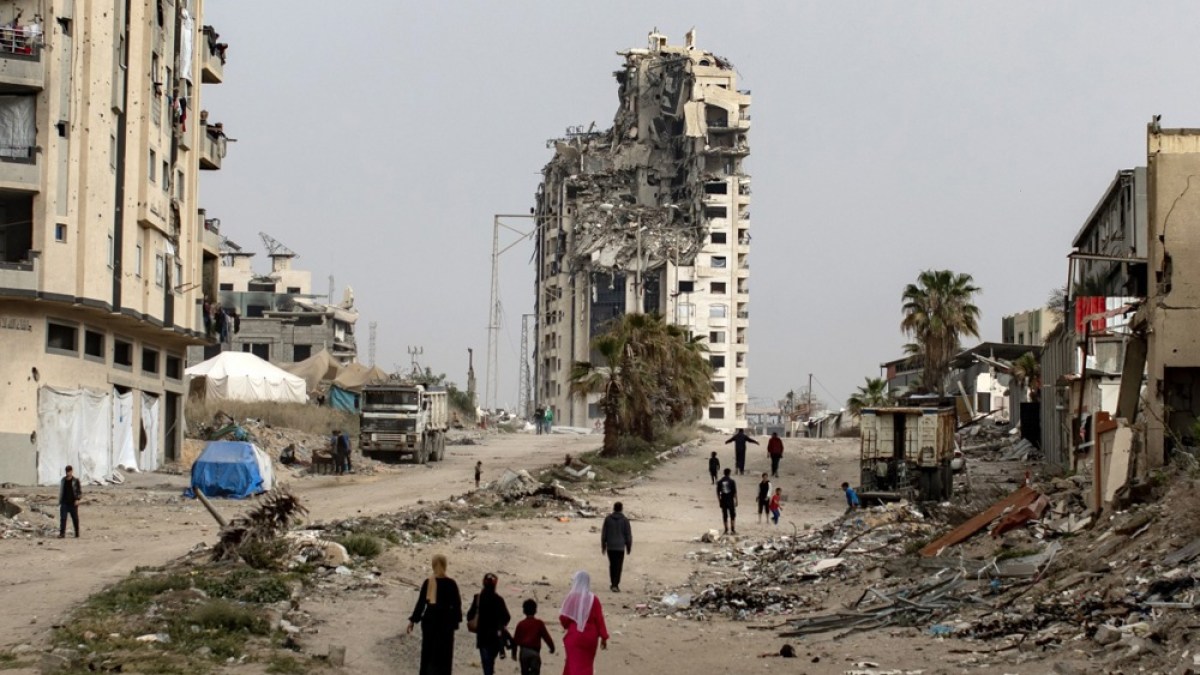
United Nations Secretary-General Antonio Guterres has spoken out about the dire humanitarian situation unfolding in the besieged Gaza Strip, saying “civilians are in an endless death loop” amid renewed Israeli bombardments and a ban on the entry of much-needed aid.
Speaking to reporters on Tuesday, Guterres rejected a new Israeli proposal to control aid deliveries in Gaza, saying it risks “further controlling and callously limiting aid down to the last calorie and grain of flour”.
“Let me be clear: We will not participate in any arrangement that does not fully respect the humanitarian principles: humanity, impartiality, independence and neutrality,” Guterres said.
No aid has been delivered to the enclave of 2.3 million people since March 2 as Israel continues to seal vital border crossings, barring the entry of everything from food to medical supplies and fuel.
“More than an entire month has passed without a drop of aid into Gaza. No food. No fuel. No medicine. No commercial supplies,” Guterres said in New York.
“As aid has dried up, the floodgates of horror have reopened. Gaza is a killing field – and civilians are in an endless death loop,” he added.
COGAT, an Israeli military unit responsible for civilian matters in occupied Palestinian territory, last week met with UN agencies and international aid groups and said it proposed “a structured monitoring and aid entry mechanism” for Gaza, after it claimed that aid was being diverted away from civilians by Hamas.
Jonathan Whittall, the senior UN aid official for Gaza and the West Bank, said last week that there was no evidence of aid being diverted.
Israel last month resumed its bombardment of Gaza, ending a fragile two-month truce. It also sent troops back into the enclave and has been trying to seize territory, including parts of Rafah in Gaza’s south.
“Meanwhile, at the crossing points, food, medicine and shelter supplies are piling up, and vital equipment is stuck,” Guterres said.
‘Unequivocal obligations’
Al Jazeera’s Gabriel Elizondo, reporting from UN headquarters in New York, said it is the first time Guterres has used such strong language in remarks about Gaza, signalling that he is getting “exasperated by how bad the situation has become there”.
“He laid out very specific ways in which Israel is violating international law.”
Guterres concluded his remarks by once again calling for a permanent ceasefire, full humanitarian access in Gaza and the release of Israeli captives held in Gaza.
“With crossing points into Gaza shut and aid blockaded, security is in shambles and our capacity to deliver has been strangled,” he said.
“As the occupying power, Israel has unequivocal obligations under international law, including international humanitarian law and international human rights law,” Guterres said.
That means Israel should facilitate relief programmes and ensure food, medical care, hygiene and public health standards in Gaza, he said. “None of that is happening today,” he added.
Meanwhile, French President Emmanuel Macron visited the Egyptian city of El Arish, a key transit point for Gaza-bound aid, to call on Israel to lift its blockade of aid deliveries.
Alongside his Egyptian host, President Abdel Fattah el-Sisi, Macron toured a hospital in the port city 50km (30 miles) west of the Gaza Strip and met with medical professionals and sick and wounded Palestinians evacuated from Gaza.
Carrying a bouquet of red roses to give to patients, the French president visited several wards as well as a play area for children.
His office said the trip was aimed at putting pressure on Israel for “the reopening of crossing points for the delivery of humanitarian goods into Gaza”.
Emergency department doctor Mahmud Mohammad Elshaer said the hospital had treated about 1,200 Palestinian patients since Israel’s assault on Gaza began in October 2023.
“Some days we can receive 100 patients, others 50,” Elshaer said, adding that many had sustained amputations or eye or brain injuries.
In Cairo, Macron, el-Sisi and Jordan’s King Abdullah II called for an “immediate return” to the ceasefire.
The three leaders met on Monday to discuss the war and humanitarian efforts to alleviate the suffering of Palestinians in Gaza, the vast majority of whom have been displaced at least once during the war.
More than 50,000 Palestinians have been killed in Israel’s genocide in Gaza. Buildings and infrastructure on large swaths of land have been destroyed, and the healthcare system has collapsed.
Middle East
Palestinian photographer Samar Abu Elouf wins world’s top photo prize | Gaza News
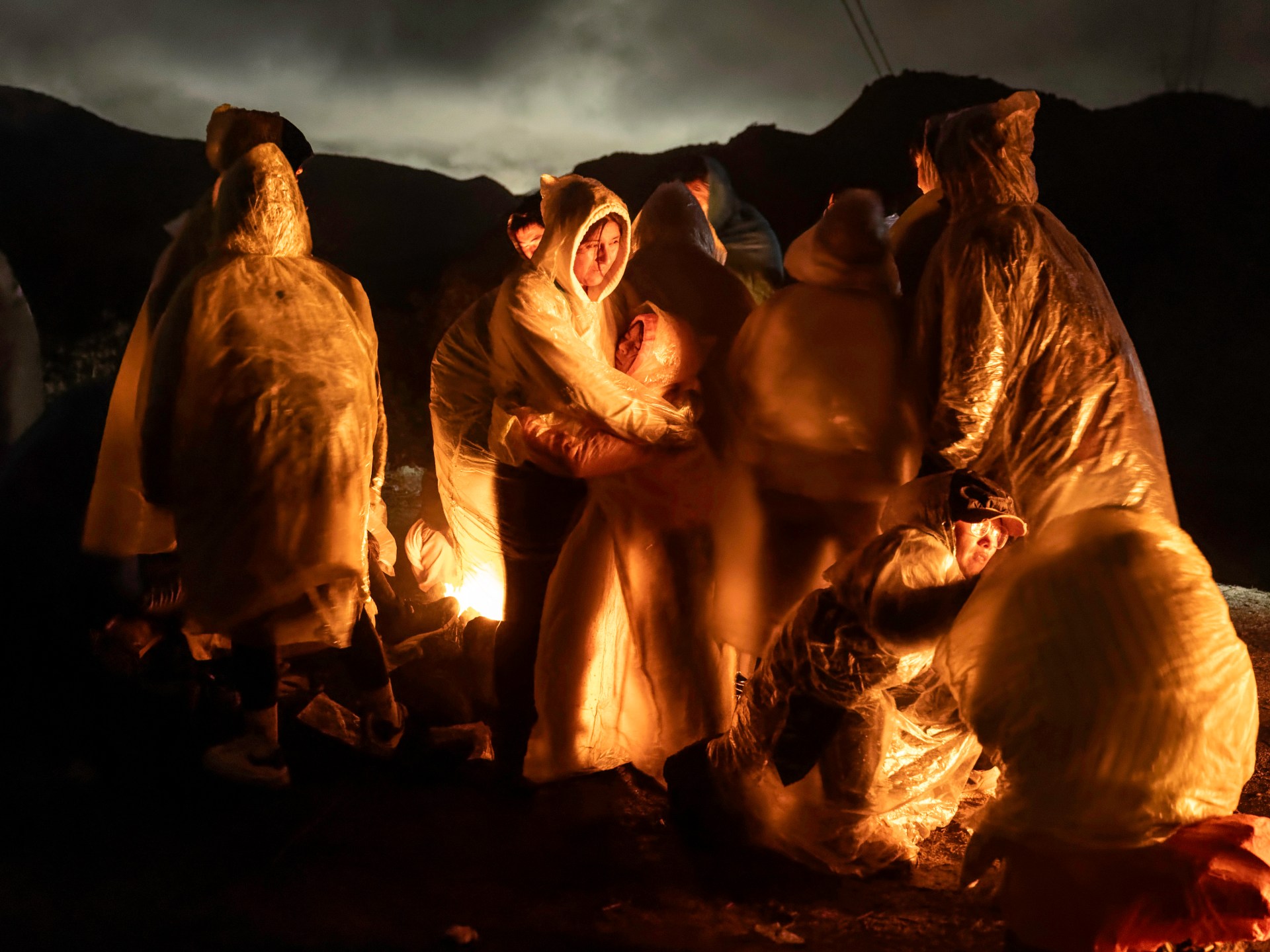
The 2025 World Press Photo of the Year has been awarded to Samar Abu Elouf, a Doha-based Palestinian photographer, for her poignant image of Mahmoud Ajjour, a young boy severely injured while fleeing an Israeli attack in Gaza.
Captured for The New York Times newspaper, the photograph powerfully conveys Mahmoud’s suffering and resilience after an explosion in March last year left one of his arms severed and the other mutilated.
Since her evacuation from Gaza in December 2023, Abu Elouf has been documenting the experiences of individuals like Mahmoud, who sought medical treatment abroad.
Joumana El Zein Khoury, executive director of World Press Photo, an Amsterdam-based organisation, described the image as “quiet” yet deeply impactful, capturing the intimate suffering of one child while also speaking to the wider repercussions of global conflict.
The winner and two finalists were announced on Thursday, during the press opening of the World Press Photo Exhibition in Amsterdam. The exhibition will travel to more than 60 locations worldwide, showcasing some of the year’s most compelling and visually striking stories.
For 70 years, the World Press Photo Contest has honoured the best in photojournalism. This year’s contest received at least 59,000 submissions from photographers in 141 countries, featuring powerful stories of struggle, defiance, warmth and courage.
Here are some of the top images of this year:
Middle East
Portrait of amputee Palestinian boy from Gaza wins World Press Photo award | Israel-Palestine conflict News
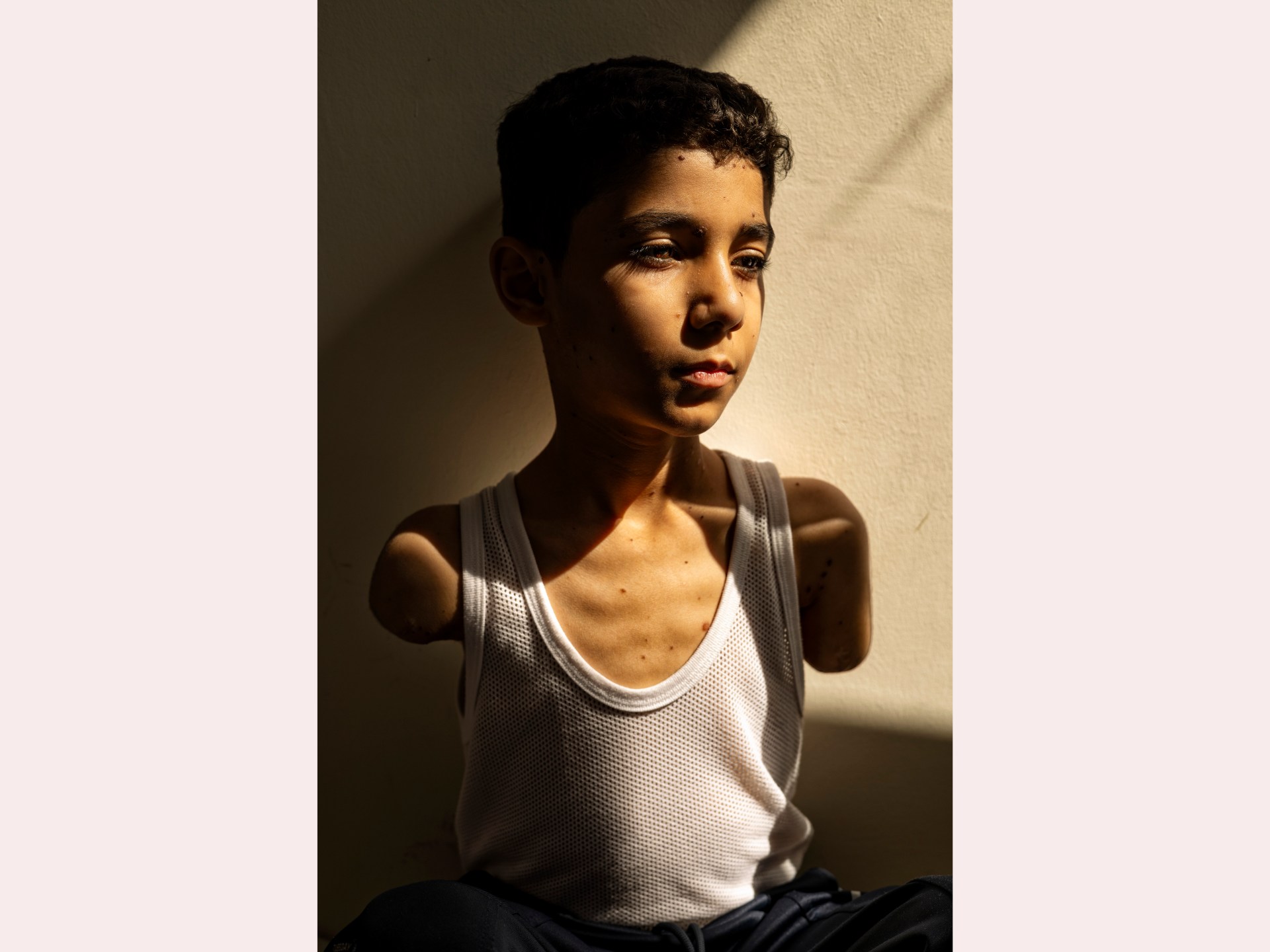
The winning photo depicts nine-year-old Mahmoud Ajjour, whose arms were severed in an Israeli attack in Gaza last year.
The solemn portrait of a nine-year-old Palestinian boy, whose arms were severed and mutilated during an Israeli attack on Gaza City, has won the 2025 World Press Photo of the Year award.
The picture, given the accolade on Thursday, was taken by Samar Abu Elouf for The New York Times newspaper, and depicts Mahmoud Ajjour.
“One of the most difficult things Mahmoud’s mother explained to me was how when Mahmoud first came to the realisation that his arms were amputated, the first sentence he said to her was, ‘How will I be able to hug you’?” said Abu Elouf.
Ajjour was evacuated to Doha, Qatar, following the Israeli explosion in March last year, an attack in the continuing war that has killed at least 51,025 Palestinians, wounded about 116,432 others and reduced much of the enclave to rubble.
The photographer is also from Gaza and was herself evacuated in December 2023. She now takes photos of badly wounded Palestinians based in Doha.
“This is a quiet photo that speaks loudly. It tells the story of one boy, but also of a wider war that will have an impact for generations,” said Joumana El Zein Khoury, World Press Photo’s executive director.
The jury praised the photo’s “strong composition and attention to light” and its thought-provoking subject matter, especially questions raised over Mahmoud’s future.
It also lauded how the photo depicts “the dehumanisation of a region, and about the relentless targeting of journalists in Gaza alongside the continued denial of access to international reporters seeking to expose the realities of this war”.
The boy is now learning to play games on his phone, write, and open doors with his feet, but still needs special assistance for most daily activities, such as eating and dressing, the jury said.
“Mahmoud’s dream is simple: he wants to get prosthetics and live his life as any other child,” said the World Press Photo organisers in a statement.
The statement cited the United Nations Works and Relief Agency (UNWRA)’s recent estimation that by December last year, Gaza had more child amputees per capita than anywhere else in the world.
“Children are disproportionately impacted by the war,” the jury stated.
Runner-up prize
The jury also selected two photos for the runner-up prize.
The first, entitled “Droughts in the Amazon” by Musuk Nolte for Panos Pictures and the Bertha Foundation, shows a man on a dried-up river bed in the Amazon carrying supplies to a village once accessible by boat.
The second, “Night Crossing” by John Moore shooting for Getty Images, depicts Chinese migrants huddling near a fire during a cold rain after crossing the US-Mexico border.

The jury sifted through 59,320 photographs from 3,778 photojournalists to select 42 prize-winning shots from around the world.
Nairobi-based Luis Tato won in the “Stories” category for the Africa region for a selection of photos depicting Kenya’s youth uprising.
Jerome Brouillet won in the “Singles” category Asia Pacific and Oceania for his iconic picture of surfer Gabriel Medina seemingly floating above the waves.
Clarens Siffroy won in the “Stories” category North and Central America for his coverage of the gang crisis in Haiti.
Finally, Anselmo Cunha won in the “Singles” category for South America for his photo of a Boeing 727-200 stranded at Salgado Filho International Airport in Brazil.
Middle East
Hamas accuses Israel of weaponising aid as Gaza’s hunger crisis worsens | Gaza News
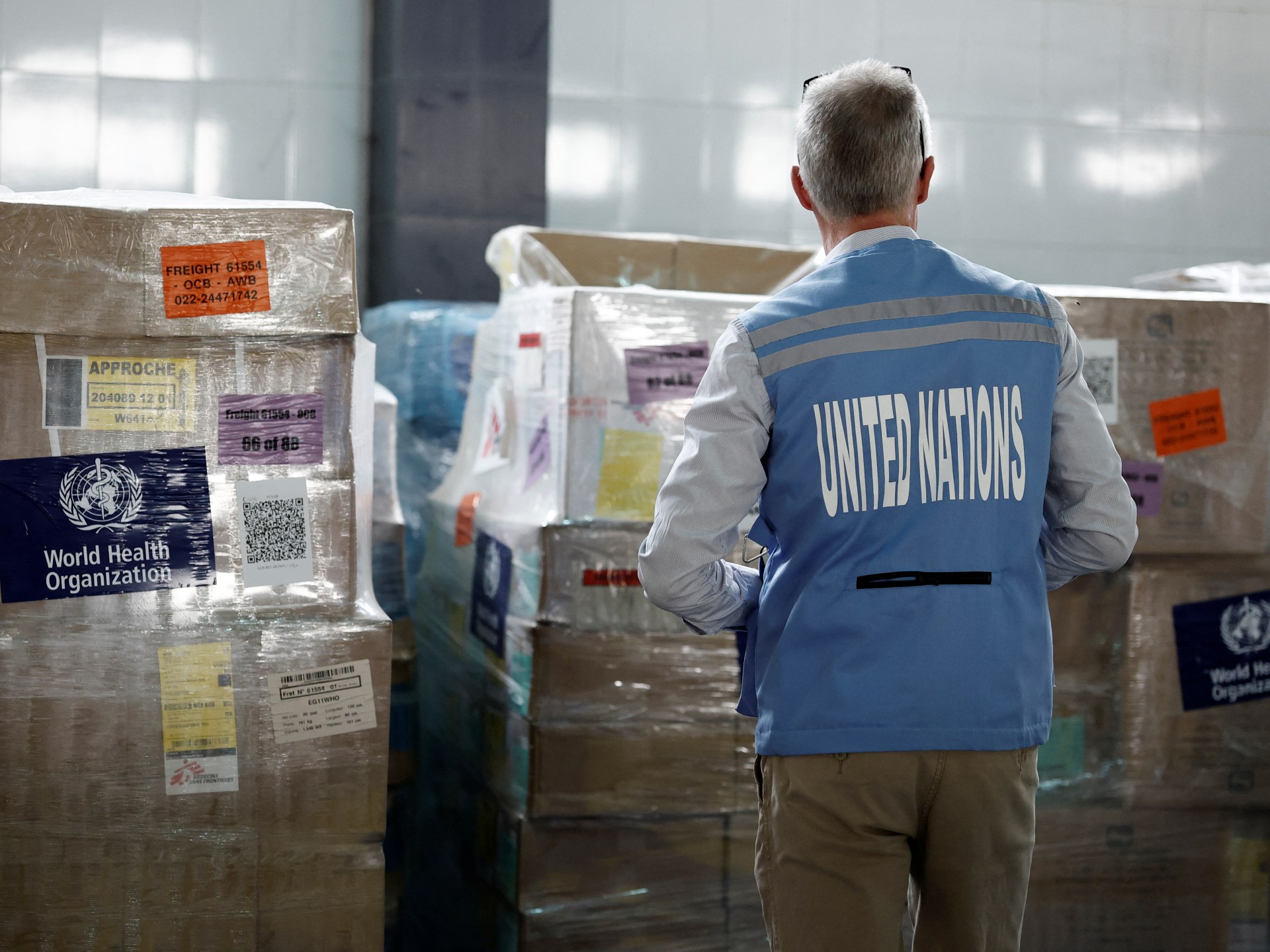
Israel’s defence minister says blockade is a ‘pressure lever’ against Hamas and there are no plans to ease it.
Hamas has accused Israel of openly using starvation as a weapon of war, a day after Israel’s defence minister pledged to maintain a blockade on aid entering Gaza.
Aid deliveries into the Palestinian territory have been halted since March 2, weeks before Israel broke a temporary ceasefire by restarting aerial bombardment on March 18 and later relaunched its ground assault.
Speaking on Wednesday, Israeli Defense Minister Israel Katz described the blockade as a “main pressure lever” against Hamas, saying there were no plans to ease restrictions – despite UN warnings that malnutrition is rapidly worsening in Gaza.
In response, Hamas condemned Katz’s remarks as “a public admission of committing a war crime”.
Israel is “depriving innocent civilians of basic necessities of life, including food, medicine, water and fuel, for the seventh consecutive week”, the group said in a statement posted to Telegram on Thursday.
“We renew our calls for the international community to take action to stop the starvation and blockade imposed on the Gaza Strip,” it added.
In March 2024, the United Nations’ International Court of Justice ruled Israel must ensure the delivery of essential aid – including food, water, fuel and medical supplies – into Gaza. Israel has repeatedly defied the binding order, claiming that Hamas misuses aid.
‘Food consumption sharply deteriorating’
According to Israel’s Kan broadcaster, Israeli defence figures estimate Gaza’s remaining food supplies could be depleted within a month.
The Israeli army is brainstorming ways to deliver aid “without it reaching Hamas”, including proposals for “stationary aid centres” managed by international organisations in zones secured by Israeli forces, Kan reported.
Al Jazeera’s Nour Odeh, reporting from Amman, said sources in UN agencies have told her that Israel wants to pre-approve who receives aid – essentially vetting beneficiaries in advance.
“Already we have heard from the United Nations that this is something that cannot be acceptable,” she said.
The reports come as the UN escalates warnings about deepening hunger in Gaza.
The UN’s Office for the Coordination of Humanitarian Affairs (OCHA) reported that 3,696 children were newly admitted with acute malnutrition in March – an 80 percent increase from February.
“Food consumption in Gaza has sharply deteriorated due to the blockade on the entry of humanitarian aid and other critical supplies now in its seventh week,” OCHA said.
Odeh added: “This is the official Israeli policy: No food, no water, no aid for Gaza, while Israel takes more and more of the territory’s land.”

-

 Education1 day ago
Education1 day agoTrump administration revokes humanitarian parole of Spanish teacher
-

 Conflict Zones2 hours ago
Conflict Zones2 hours agoHaiti in ‘free fall’ as violence escalates, rights group warns | Armed Groups News
-

 Europe1 day ago
Europe1 day agoPolice arrest couple for breeding and selling exotic cats in Spain
-

 Europe1 day ago
Europe1 day agoCody Balmer, the suspect in arson at Pennsylvania governor’s home targeted the governor for his views on war in Gaza, warrant says
-

 Sports1 day ago
Sports1 day agoNew Orleans Saints win lawsuit over fleur-de-lis trademark filed by ‘direct descendant of the Kings of France’
-
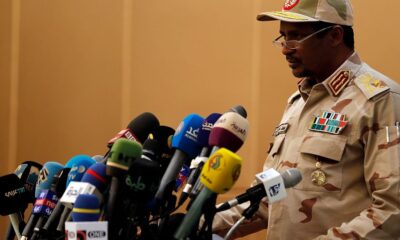
 Africa1 day ago
Africa1 day agoSudan: Rapid Support Forces leader announces rival government
-
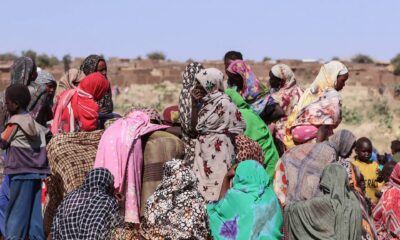
 Conflict Zones1 day ago
Conflict Zones1 day agoAfter two years of war in Sudan, the world can no longer plead ignorance | Conflict
-
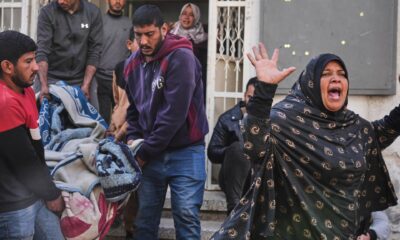
 Middle East1 day ago
Middle East1 day agoGaza ‘mass grave’ for Palestinians and those helping them: MSF | Israel-Palestine conflict News



